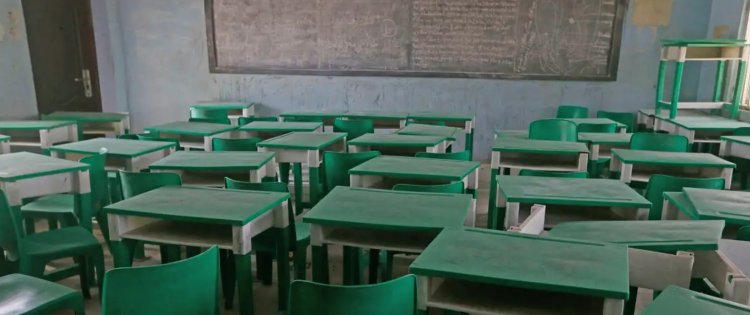Conflict Forces 2.8 Million Children Out of School in West and Central Africa; Report Reveals
Conflict across West and Central Africa has disrupted the education of 2.8 million children, with Nigeria and Cameroon being the most affected. In Nigeria, over 15.23 million children are out of school, particularly in the conflict-ridden northern regions.

Ongoing conflicts in West and Central Africa have disrupted the education of approximately 2.8 million children, particularly in Nigeria and Cameroon, according to a United Nations report. The crisis has worsened, with over 14,000 schools closed by the second quarter of 2024, a thousand more than the previous year. This education emergency underscores the broader global crisis, with Sub-Saharan Africa accounting for nearly 30% of the 250 million out-of-school children worldwide.
In Nigeria, over 15.23 million children are out of school, with the country's northern regions — ravaged by Boko Haram insurgencies, bandit attacks, and kidnappings — bearing the brunt of the crisis. The Northwest and Northeast alone account for 8.04 million and 5.06 million out-of-school children, respectively, compared to 2.58 million in the southern region. Experts, such as Dr. Ibrahim Baba Shatambaya of Usmanu Danfodiyo University, have identified poor governance and insufficient crisis management at the local, state, and federal levels as key factors worsening the situation.
Cameroon faces a similar plight, especially in its Anglophone regions, where over 855,000 children were out of school by 2021. Armed separatist groups have targeted schools, with thousands of children unable to attend class, some for years. Civil society activist Biezel Mafor described the situation as "alarming," as children in these conflict zones see their futures "shattered."
The long-term consequences of this education crisis are profound. Analysts warn that deprived of education, many children are at risk of becoming embroiled in terrorism, contributing to a cycle of underdevelopment, unemployment, and corruption across the continent. Despite international aid, experts emphasize that the real solution lies in local governance and proactive measures to restore access to education, ensure safety, and address the root causes of conflict.

 Chris Oyeoku Okafor
Chris Oyeoku Okafor 



